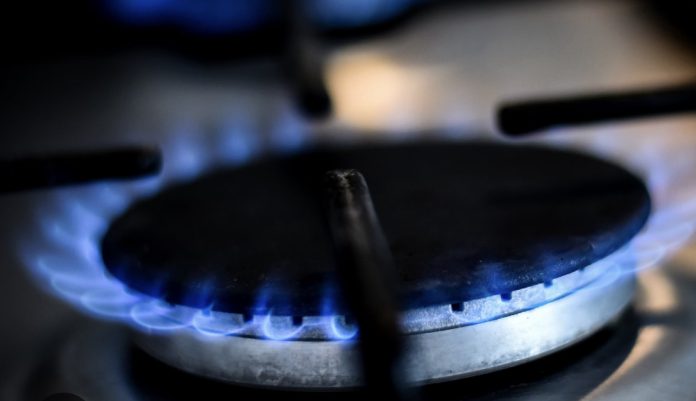CPI inflation in January remained at its December level of 4.0 per cent – slightly weaker than the 4.1 per cent the Bank of England and financial markets had expected.
This was despite the Ofgem price cap rising in January, which was offset by falling furniture and food prices
The biggest upward pressure on inflation came from the rise in the Ofgem price cap in January, which rose from £1,834 to £1,928 per year.
But this was offset by welcome falls in furniture and food – with the first monthly fall in food prices since September 2021.
The latter is particularly good news for lower-income households struggling with the cost of living crisis, who spend a larger proportion of their income on food.
Unchanged inflation in January is likely to prove a pause in the welcome retreat of inflation, as energy prices are expected to put downward pressure on CPI in the coming months.
There was also good news on underlying inflationary pressures with core and services inflation somewhat weaker than expected.
Core inflation was at 5.1 per cent, compared to 5.2 per cent expected by the market, and services inflation at 6.5 per cent, compared to the Bank of England’s expectation of 6.6 per cent.
Ben Harrison, Director of the Work Foundation at Lancaster University, a leading think tank for improving working lives in the UK:
“The UK has hit a second minor set-back this year as inflation is struck at 4%, which is unchanged from the previous month, due to higher gas and electricity charges. This will present a quandary to Bank of England rate-setters about whether to stick or reduce interest rates as inflation remains double their target.
“And it presents big challenges for workers. Real term pay may have risen this month by 1.4%, but ONS data shows that four in ten adults who pay energy bills are finding it very or somewhat difficult to afford them, and the OBR predicts living standards will be 3.5% lower in 2024-25 than before the pandemic.
“Those in low paid and insecure jobs will be worst impacted by this and among those most vulnerable should inflation remain stuck or if interest rates rise further. This underlines the importance of more action to improve access to better paid, more secure jobs.”
Lalitha Try, Economist at the Resolution Foundation, said:
“No news is good news along the bumpy road back to 2 per cent, with inflation flatlining at 4 per cent in January, confounding expectations of a rise.
“Instead, rising energy costs in January were offset by falling furniture and food costs – with food prices falling for the first time since September 2021. This is welcome news for low-income households who spend a higher proportion of their income on food.”







